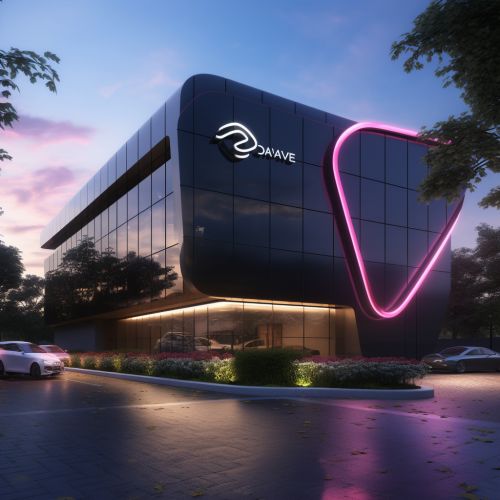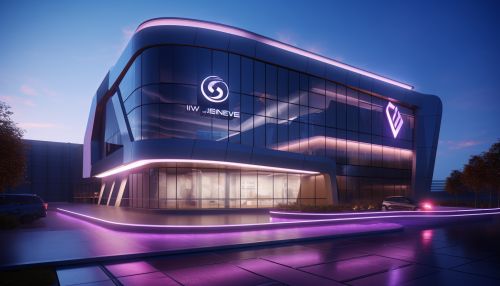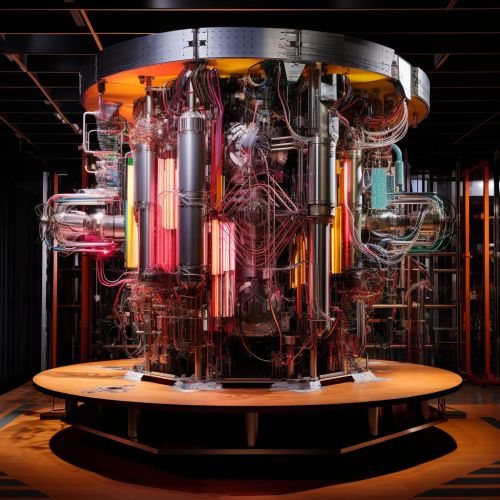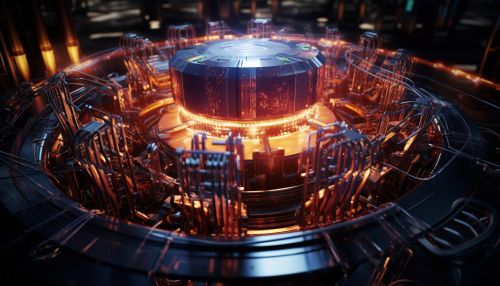D-Wave Systems
Overview
D-Wave Systems is a Canadian quantum computing company, based in Burnaby, British Columbia, Canada. Founded in 1999, D-Wave Systems is a pioneer in the field of quantum computing, a sector of computing technology that leverages the principles of quantum mechanics to perform computations. The company is known for its development of quantum annealing technology, a specific type of quantum computing that is designed to solve optimization problems more efficiently than classical computers.


History
D-Wave Systems was established in 1999 by Geordie Rose, Bob Wiens, and Alexandre Zagoskin. The company was initially funded by the founders, and later received significant investment from venture capital firms such as Draper Fisher Jurvetson, Goldman Sachs, and Bezos Expeditions. The company's primary focus has been on the development of quantum computing technology, with a specific emphasis on quantum annealing.
Quantum Computing
Quantum computing is a field of computing technology that leverages the principles of quantum mechanics to perform computations. Unlike classical computers, which use bits as their most basic unit of information, quantum computers use quantum bits, or qubits. Qubits can exist in multiple states at once, a property known as superposition, which allows quantum computers to process a vast number of possibilities simultaneously.
D-Wave Systems has focused on a specific type of quantum computing known as quantum annealing. Quantum annealing is a quantum algorithm for finding the global minimum of a given function over a given set of possible output states, using a process called quantum tunneling. This makes it particularly useful for solving optimization problems, where the goal is to find the best solution from a set of possible solutions.
D-Wave's Quantum Annealing Technology
D-Wave's quantum annealing technology is designed to solve complex optimization problems more efficiently than classical computers. The company's quantum computers use a lattice of qubits, which can be programmed to represent the problem to be solved. The qubits are then cooled to near absolute zero, and the system is allowed to evolve naturally to its lowest energy state, representing the optimal solution to the problem.


D-Wave's quantum annealing technology has been used in a variety of applications, including machine learning, financial modeling, drug discovery, and logistics optimization. However, it's important to note that quantum annealing is not a general-purpose computing technology, and is not suitable for all types of problems.
Products
D-Wave Systems has released several generations of quantum computers, each with increased performance and capabilities. The company's product line includes the D-Wave One, D-Wave Two, D-Wave 2X, and the D-Wave 2000Q. In 2020, D-Wave launched the Advantage system, its most powerful quantum computer to date, featuring over 5000 qubits and 15-way qubit connectivity.
Criticism and Controversy
Despite its pioneering role in the field of quantum computing, D-Wave Systems has faced criticism and controversy. Some in the scientific community have questioned the company's claims about the capabilities of its quantum computers, and there has been debate over whether D-Wave's machines truly exhibit quantum behavior. However, the company has consistently defended its technology, and independent tests have shown that D-Wave's machines do exhibit quantum annealing behavior.
Future Prospects
The field of quantum computing is still in its early stages, and much remains to be discovered and understood. However, the potential of quantum computing is enormous, and D-Wave Systems is at the forefront of this exciting field. The company continues to innovate and develop its quantum annealing technology, and is actively exploring new applications for its quantum computers.
